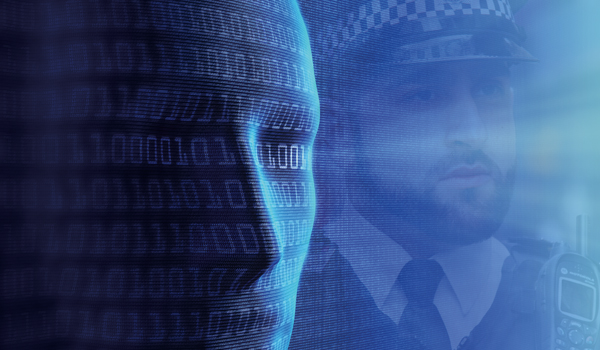Harnessing potential of AI on front line
Policing is on the cusp of a revolution with the rise of artificial intelligence (AI). Considering its transformative potential, ensuring the responsible use of AI is one of the most important questions for policing today.
Policing is on the cusp of a revolution with the rise of artificial intelligence (AI). Considering its transformative potential, ensuring the responsible use of AI is one of the most important questions for policing today.
This was the key message at a recent roundtable hosted by the independent think-tank Reform that gathered experts from across policing, policy and academia to discuss how best to capitalise on the opportunities and mitigate the risks of AI, allowing for its sustainable and responsible application moving forward.
Reform says public perception often associates AI with automation, cost-cutting and job loss. AI is widely regarded as one of the key policing tools in the future amid budget and job cuts. And Jeff Farrar, who retired in the summer as chief constable of Gwent Police, has said that a lot of the things that we may be able to do in the future through AI might be things that ordinarily would have been done by people.
However, Reform says this overlooks AIs potential and nowhere is this more important than in the front line of crucial public services.
A report last year from Stanford University in California Artificial Intelligence and Life in 2030 identified public safety and security as one of the domains in which AI will become much more prevalent in the coming decades.
Sarah Timmis, research assistant at Reform, says AI-enabled policing has a great capacity to reduce crime, protect staff, increase the capacity of forces and improve value for money.
Police forces nationally have already taken steps to digitise their day-to-day work. In-field technology has made policing increasingly safe and efficient. Data analytics, facial recognition and predictive policing have significantly improved the ability to prevent crime, despite being in their very early days, she said in her latest Reformer blog.
The roundtable, led by Steven Kavanagh, chief constable of Essex Police and chair of the National Police Chiefs Council Digital Policing Board, and held in partnership with Accenture, focused on the technical and societal factors that will accelerate or hinder the development and use of AI. In particular, how best to harness the use of AI in a sustainable and responsible way, looking at the case study of responsible AI in policing.
Attendees agreed that AI has three kinds of potential, said Ms Timmis.
First, AI can manage the mundane. Police spend significant time on administrative tasks, writing up cases and recording information, often on slow computers. AI can assist police with these repetitive activities, enabling them to spend more time on the beat, dealing with complex crimes and working to create safer communities.
Secondly, sophisticated AI technology can aid decision-making. As the volume of data expands, AI has the capacity to turn this data into meaningful information. A police car heading to a crime scene, for example, could use AI systems to understand the demands to which they must respond, based on trends in the data. By managing this increasingly complex data, AI can support police to make better strategic decisions, and therefore achieve better outcomes for citizens.
Thirdly, AI can police the virtual world. As a recent report by Reform identified, police must embrace new technologies to combat rising cybercrime. AI is part of this solution. Its speed and hyper degree of precision makes it the perfect tool to patrol virtual spaces, and identify and moderate transgressions online.
Responsibility tests
To win popular support, Ms Timmis said attendees agreed that AI must pass several responsibility tests before policing, and the rest of society, can enjoy its potential.
First, AI requires the right kind of regulation to ensure it is properly accountable for its decisions. Secondly, police forces need to address the concern that AI will suffer from human biases, which could lead to continued discrimination against certain communities. Thirdly, decisions must be transparent to the public to ensure trust and legiti



